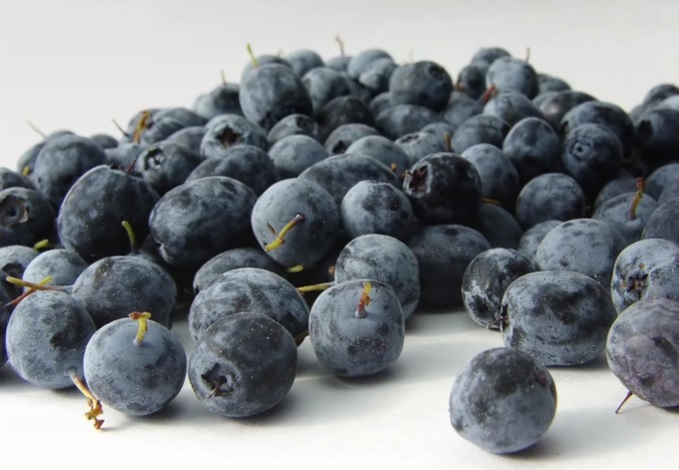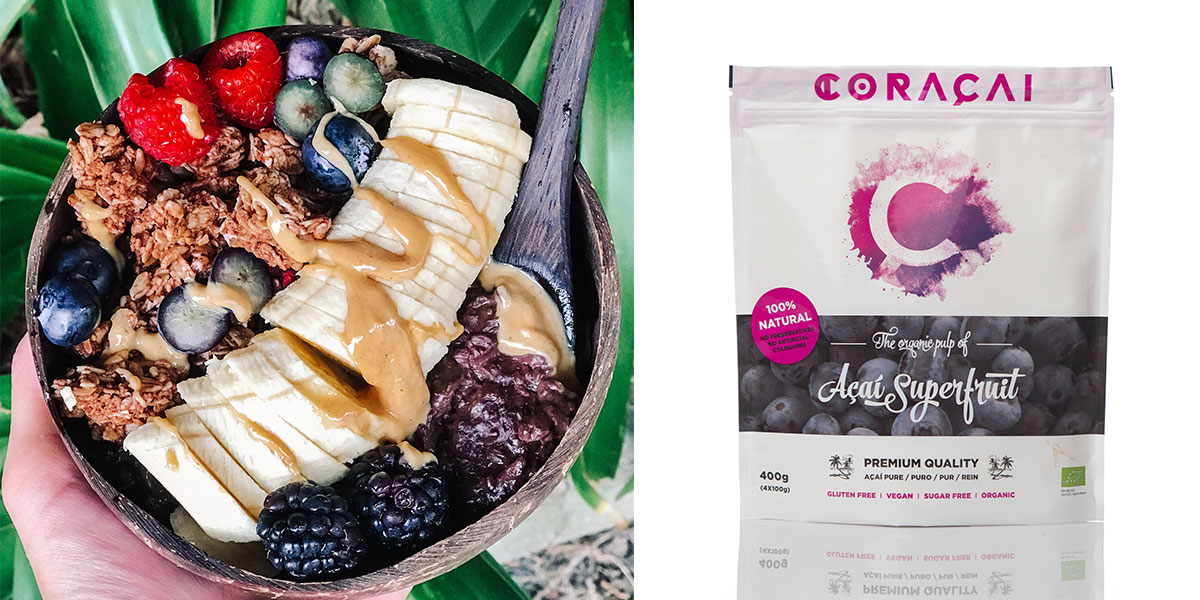
Does Açaí Lower Cholesterol?
Unless you live in a parallel reality you’ve probably heard that having high cholesterol is bad. They say it on TV, on the radio, on many websites… But what is true about this? Can you do something about it through diet? And above all, can regular consumption of açaí lower cholesterol?
We will answer you these questions so controversial today and we will uncover one of the biggest myths of food. Perhaps when you finish reading this article, your perception of the importance of the lipid profile has changed. We will also teach you how açaí, and other fruits with high antioxidant content, can help cardiovascular function and influence cholesterol. Do not miss it.
What is cholesterol?
Cholesterol is a set of lipoproteins that have essentially a function, transport fat molecules from points to points in the body through the blood. Cholesterol is commonly divided into HDL (good) and LDL (bad), although both connotations are quite out of place. There are other different subdivisions that are in smaller proportion, but do not enjoy much fame.
The interesting thing about all this is that, although throughout the twentieth century an increase in blood cholesterol was associated with a higher risk of cardiovascular disease, current studies begin to question this association. But there is more. For years, the intake of foods rich in dietary cholesterol was also restricted since they were said to be capable of negatively affecting blood lipid profile values.
If you have heard that having cholesterol above 200 is bad and that you should take a pill for life, wait a moment. We will offer you another point of view backed by the science.
According to research published in the journal Nutrients, the consumption of foods high in cholesterol not only does not substantially modify the values of blood lipoproteins but also does not have a harmful effect on cardiovascular risk.
So isn´t choresterol bad?
The answer to this question is simple: NO. At least not as conceived until a few years ago. Currently, it is investigated if a small fraction of LDL cholesterol susceptible to oxidation and known as VLDL can influence the risk of developing cardiovascular problems. However, current trials so far fail to provide consistent results.
We have now answered two fundamental questions. Dietary cholesterol does not significantly affect the lipid profile and the latter is not closely related to cardiovascular disease. Now you’re wondering what the açaí looks like in all this…
The antioxidants of açaí
 As we have mentioned, cardiovascular risk is being attributed (in addition to other factors) to the oxidation rate of that small fraction of cholesterol known as VLDL. This process can be slowed down through food, including foods high in antioxidants.
As we have mentioned, cardiovascular risk is being attributed (in addition to other factors) to the oxidation rate of that small fraction of cholesterol known as VLDL. This process can be slowed down through food, including foods high in antioxidants.
This is where the açaí and anthocyanins that it houses inside appear. These pigments able to give it dark purple color can block the appearance of free radicals, as well as the oxidation of lipoproteins. In this way the lipid profile is improved (not in number but in functionality) and reduces the risk of developing a cardiovascular disease. An essay published in the journal Food & Function supports this mechanism.
Then does açaí lower cholesterol?
Given the above, eating açai or other types of fruits with high antioxidant content (blueberries) will not reduce cholesterol levels, but it will prevent lipoproteins from oxidizing and their function is affected. When cholesterol loses its function, it becomes susceptible to build-up and cause serious problems such as atherosclerosis.
Take açaí and improve your habits
It is clear that in order to reduce the incidence of cardiovascular diseases it is necessary to modify certain lifestyles. Sedentarism, consumption of trans fats, obesity and simple sugars increase the prevalence of these diseases.
To prevent cardiovascular problems, in addition to changing your lifestyle, you can include açaí in your diet.
If you improve all of these factors, you can further reduce your risk of this type of problem by increasing your intake of antioxidants. And what better way to achieve this goal than eating açaí? Combine this exotic fruit with other fruits of the forest to get a good dose of phytonutrients that help you improve your health.
Recipe: Heart healthy açaí bowl
To help you change your life habits we leave you this recipe, prepared by Almudena HealthyChoices, which can help you include açaí in your cardio-healthy diet.
Porridge (oatmeal) with açaí
Ingredients
45 grams of oats.
1 teaspoon chia seeds.
1 teaspoon reishi mushrooms powder.
275 ml unsweetened coconut milk.
1 bag of frozen açaí pulp CORAÇAI.
1 piece of ginger root (about 1 cm thick, can be used more or less depending on taste).
A small splash of maple syrup (to add some sweetness).
Toppings: bananas, blueberries, blackberries, raspberries, peanut butter and gluten-free granola.
Preparation
In a blender, add the coconut milk, the frozen açaí pulp and the ginger and whisk until homogeneous.
Pour the mixture from the previous point into a pot and add the remaining ingredients (except toppings). Cook over medium heat until the mixture absorbs most of the liquid but does not become dry in order for the porridge not to be too thick.
Pass the porridge to a bowl and add the toppings. And ready to eat!
And enjoy!!
For more information about açaí and all products that we sell, contact us.
Head Office in Spain
CORACAÍ ALLIANCE, S. L
For international inquiries
The nutritional information of this article “Does açaí lower cholesterol?” has been provided by Saúl Sánchez Arias, nutritionist specializing in sports nutrition and nutrigenomics.
Bibliographic references:
-
-
- Ravnskov U., Lorgeril M., Diamond DM., Hama R., et al., LDL-C does not cause cardiovascular disease: a comprehensive review of the current literature. Expert Rev Clin Pharmacol, 2018. 11 (10): 959-970. https://doi.org/10.1097/GME.0000000000001831.
- Blesso CN., Fernandez ML., Dietary cholesterol, serum lipids, and heart disease: are eggs working for or against you? Nutrients, 2018. https://doi.org/10.1097/GME.0000000000001831.
- Gao S., Zhao D., Wang M., Zhao F., et al., Association between criculating oxidized LDL and atherosclerotic cardiovascular disease: a meta analysis of observational studies. Can J Cardiol, 2017. 33 (12): 1624-1632. https://doi.org/10.1097/GME.0000000000001831.
- Wood E., Hein S., Heiss C., Williams C., et al., Blueberries and cardiovascular disease prevention. Food Funct, 2019. 10 (12): 7621-7633.
-
– YOU MAY ALSO BE READ –
AÇAÍ QUALITY: NOT ALL AÇAÍ IS THE SAME
HOW TO MAKE FROZEN AÇAÍ BOWL AT HOME




